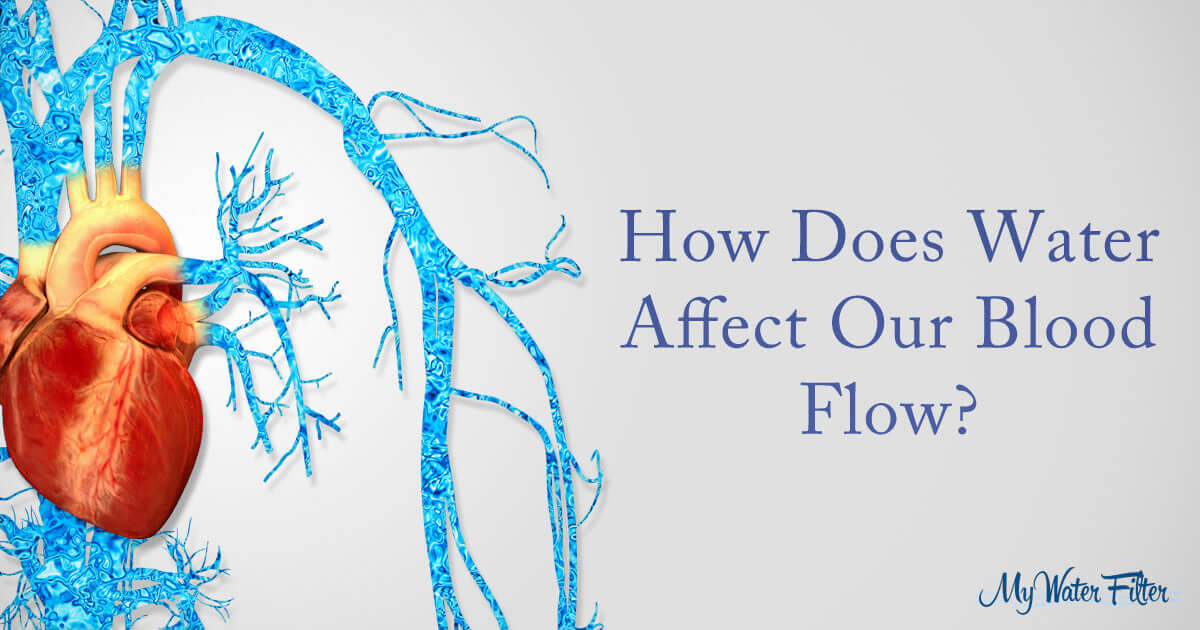More Than 90% Of Your Blood Is Water
You can only imagine how important water is to your blood when you read the above fact. A change of even just 1% in the amount of water in your bloodstream can have a drastic effect on your body, whose functioning relies greatly on the delicate balance between nutrients and fluids.
Water acts as a solvent that dissolves all materials (glucose, proteins, nutrients, and ions) in the blood plasma, the liquid component of the blood. All the solid components of the blood are useless if there is no liquid to carry them around.
- Blood plasma, which is 92% water, makes it possible for red blood cells, white blood cells, and platelets to move around the body
- Water acts as a medium for oxygen and nutrients to dissolve in
The Importance of Drinking Enough Water
However, just because water is vital to your blood and blood circulation does not suggest that you should drink too much of it. You will only overwork your kidneys. Worse, you could seriously dilute your fluids in the body and cause electrolyte imbalance, which can be fatal, although such an occurrence is quite rare.
MORE > Why Drinking too Much Water is Bad for your Body
But drinking too much water is not a common problem, the majority of people actually have a problem with not drinking enough water. Having enough water in the body is essential to keeping the volume of the blood within normal levels.
Aside from keeping the blood volume normal, enough fluid in the bloodstream is also necessary for keeping the blood's viscosity normal. Remember water gives blood its ability to flow. Too much of it can thin the blood. Too little of it can thicken the blood.
In order to understand how water is vital to your blood circulation, think about what happens when you don't drink enough...
What Happens When Your H2O Levels Drop:
-
First, your blood volume drops. Automatically your blood pressure drops as well. Lower blood pressure means less blood is getting to the brain. This makes you feel dizzy or lightheaded.
-
Then the body responds to the loss of fluid in different ways. These responses aim at conserving the fluid left. To compensate for lower blood volume and pressure, your heart beats faster to continue bringing nutrients and oxygen to different parts of the body, including the brain. But this occurs at its expense.
-
The blood vessels narrow themselves to attempt to raise the blood pressure to normal.
-
Constriction of blood vessels and capillaries causes poor blood flow to the extremities (hands and feet), causing that cold sensation.
- The kidneys will try to expel less water to avoid further fluid loss.
Water is not only important to proper blood circulation. It is the life of blood itself.
A Water Filter helps to ensure your body isn't having to struggle with toxins in the water.
Why Your Blood H20 Level Needs To Be Balanced:
There are many ways to disrupt the fluid balance in the blood.
-
Drink too much water within a short time. As mentioned, it's not recommended to drink too much water. It overworks the kidneys and throws the balance between fluids and electrolytes (ions) out of whack. Very few people drink too much water though.
-
Eating too much salty foods. Sodium in salt adds to the bulk of ions in the body, causing it to retain more water. Remember that lesson in high school about osmosis? Water tends to stay in places where there are more solutes. Too much sodium in the blood also causes too much water to stay in the blood, leading to high blood pressure. Constantly elevated blood pressure is bad for your brain, heart, and kidneys.
-
Drink too little water. This is a common problem. A lot of people go on a day with only 4-6 glasses of water. Hence, they are susceptible to chronic, though mild, dehydration.
-
Have caffeine. Coffee and chocolate drinks contain caffeine, which is a diuretic. A diuretic is a substance that makes you urinate more. Thus, you lose more water.
-
Running under the sun. Exercising is good, but you have to stay hydrated. Sweating on a hot day and breathing faster during exercise easily cause you to lose water.
-
Dry indoor environment. Yes, indoor humidity can fall well below recommended limits. Too little moisture in the air doesn't only make your hair and skin dry but also makes you lose water faster.
But it's easy to keep your blood hydrated throughout the day.










